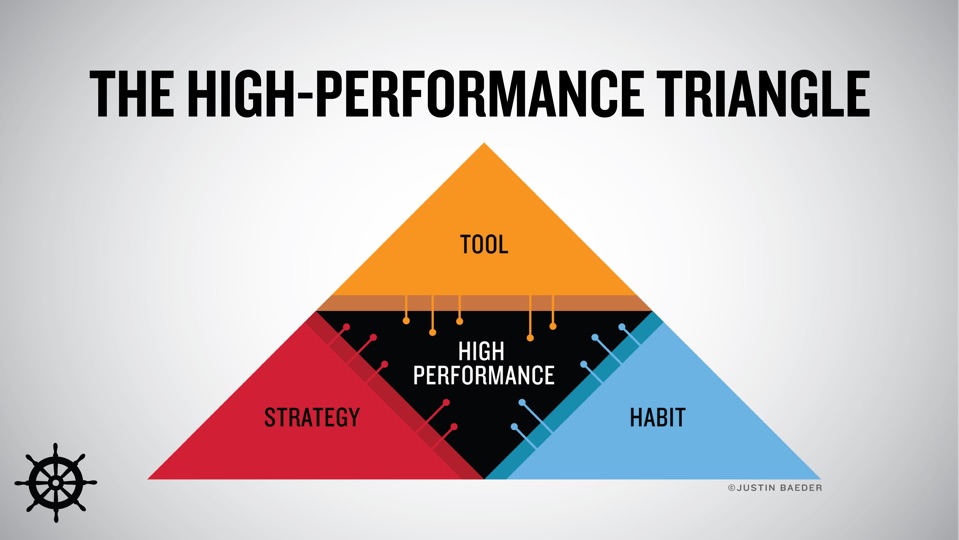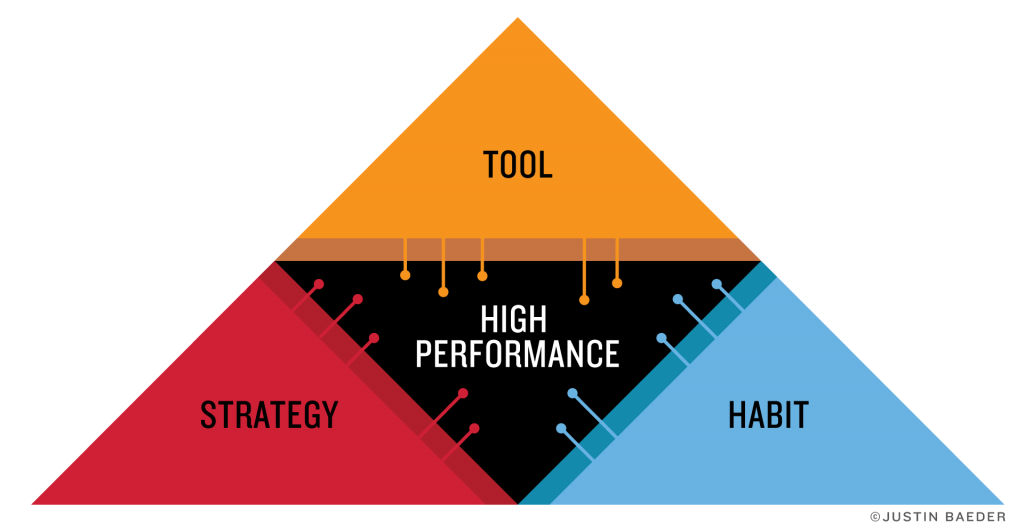
If you go to just about any education conference—and I go to a lot of them—you'll see session descriptions packed with strategy.
Everyone wants to know the best approach to each particular problem we face in education, and it's this desire that sells millions of books every year.
As educational leaders, we love strategy.
But strategy doesn't automatically create results; in fact, there's such a well-established gulf between strategy and reality that we have a special phrase for crossing this divide:
“From theory to practice.”
It's completely normal not to put theory into practice—to let the best strategies go untried.
Of course, we often do try, and find ourselves overwhelmed by the sheer amount of work it takes to implement a particular strategy successfully.
Or we get started, then have to get started on something else, then something else, and our organizational attention wanders…and that strategy isn't happening after all.
Why do we struggle to do what we know we should be doing?
If we have the strategy figured out, why is executing it so hard? I believe the answer is simple:
- Strategy isn't enough
- Good ideas aren't enough
- “Best practice” isn't enough
…because none of them get at the underlying issue: behavior. As the adults responsible for students' education, what we actually do matters more than anything else…and doing is hard.
Here, then, is my attempt at a more complete picture. If we want to attain high performance in any endeavor, we need three things:
- A solid strategy
- The right tools
- Disciplined habits

I've become convinced that all three factors—tools, habits, and strategies—are crucial, because if one is missing, we get predictably inferior results, in any area, whether it's:
- Leading major change
- Handling email
- Dealing with paperwork
- Conducting classroom observations and walkthroughs
- Following through on any kind of work
Let's look at why we need all three.
Strategy
Without strategy, we're ineffective.
If we don't have a well-considered strategy, the whole activity can be a wrongheaded waste of time, even if good tools and habits are in place.
Can you develop consistent habits of using powerful tools…poorly? Absolutely.
When we check our email with no strategy, old messages linger, clutter builds, and we never seem to get caught up. Our habits and tools don't serve us well because they're not being put to wise use.
Who struggles with strategy? I think it's my generation, those of us who are comfortable with tools and technology, who tend to put strategy on the back burner in our enthusiasm for using the latest and greatest tools.
Habits
Without habits, we're inconsistent.
Being great… some of the time… isn’t worth much.
On my team, I want players who can consistently make layups, not goofballs who can make the occasional 3-pointer from mid-court.
We need to not only know and do what works, but do it consistently. We need to use our future files to keep our desks clear. We need to get to inbox zero.
For more on how habits form and operate, see Charles Duhigg's The Power of Habit.
Who struggles with habit? I think we all do, but especially those of us who are most eager to make sure we're using the latest tools and the smartest strategies.
Tools
Without tools, we're inefficient.
Tools accelerate our work, enabling us to do more than we ever could without them.
They don't turn a non-leader into a leader, but they make an impossible job more doable, if we use them right.
Who struggles with tools? I think it tends to be people who have good strategies and habits in place, and see tools as unnecessary.
But when we have all three in place, we can accomplish amazing things.

Learn more about our courses designed around the High-Performance Triangle at www.principalcenter.com/join
